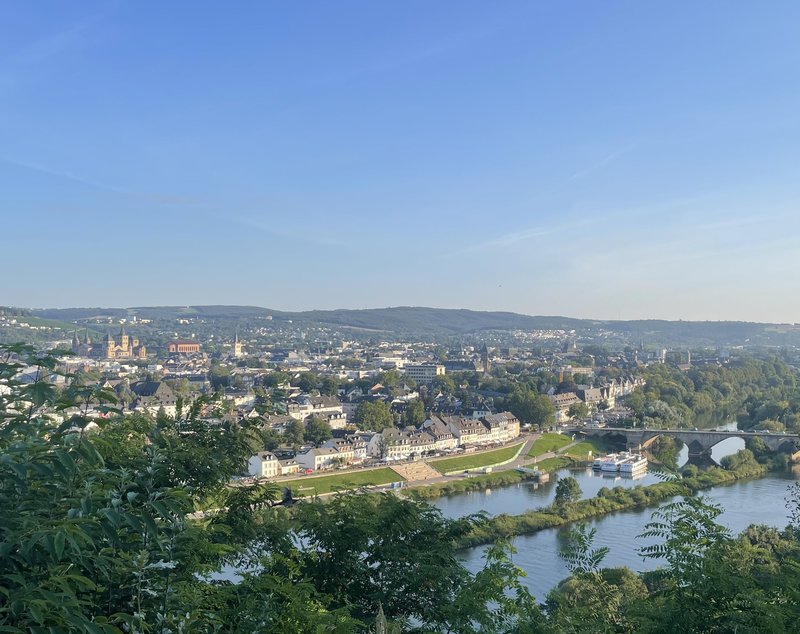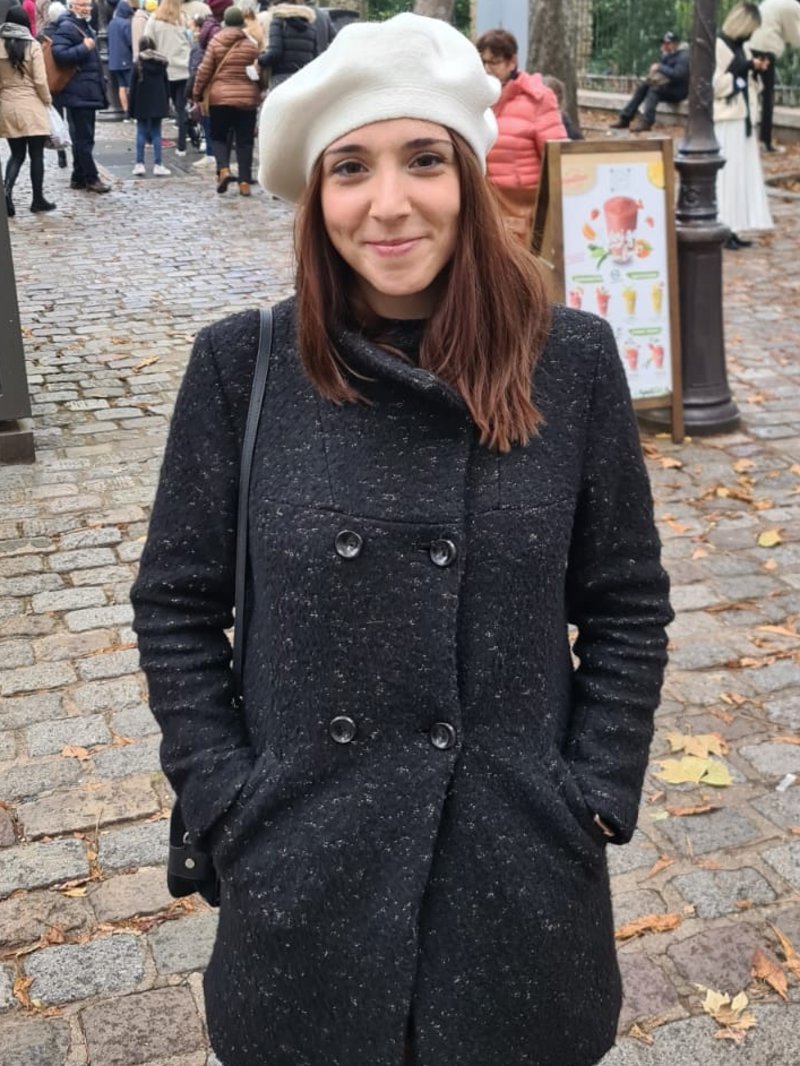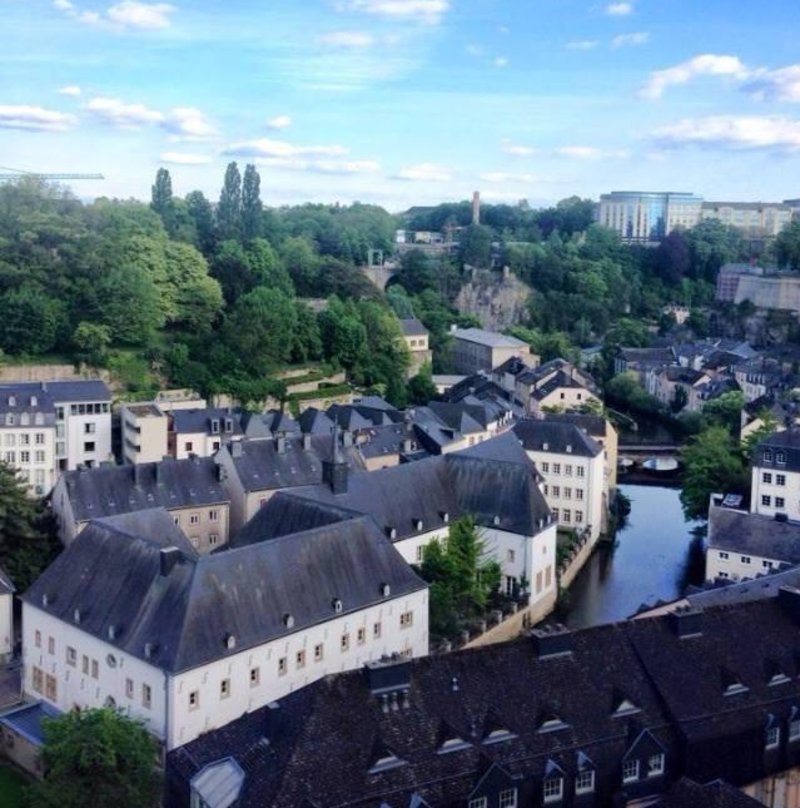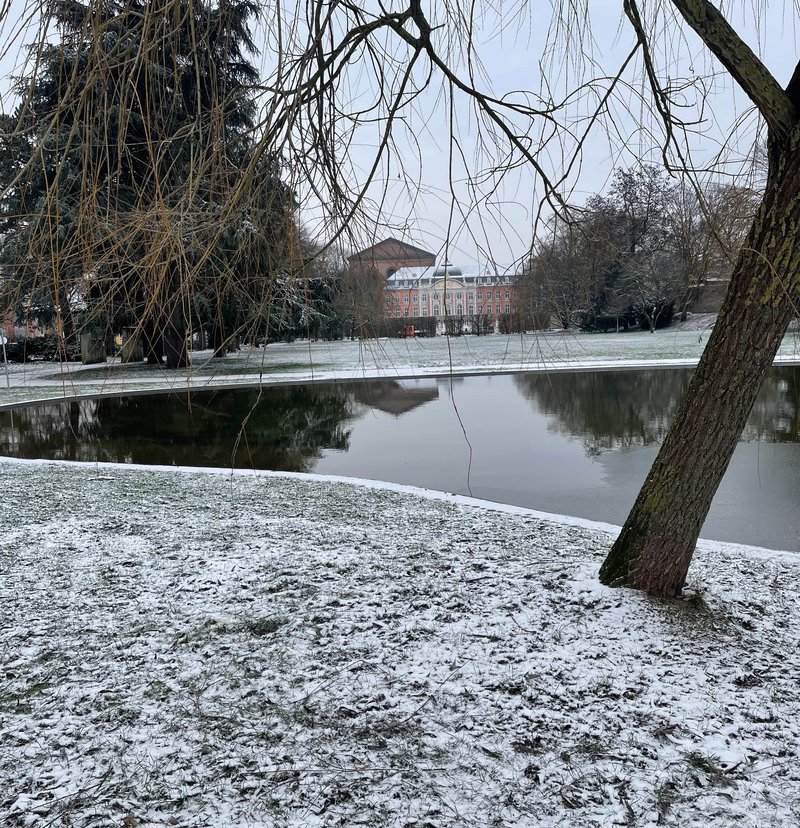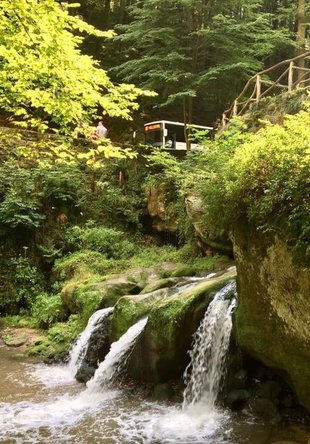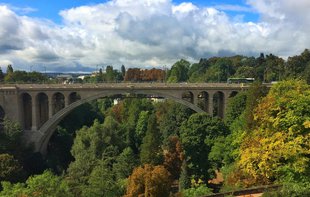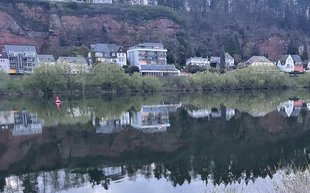Catalans Abroad
Anna Cantón. marcela topor. mtopor@cataloniatoday.cat
Language lovers’ heaven
Why did you leave Catalonia?
I’m ambitious, always trying to improve, and I’ve always had a gift for languages. I love travelling and I constantly feel the need to discover new cultures and traditions and meet people from all over the world. When I received the job offer in Luxembourg I didn’t think twice. I’ve always wanted to live and work abroad but the fact of not having good working conditions in Catalonia and not feeling valued enough at work accelerated the whole process. I accepted the offer in December and we moved in February. I do think that I mentally prepared myself for that moment my whole life and that’s why I wasn’t nervous and I didn’t hesitate or regret my decision to leave Catalonia.
Why did you choose to work in Luxembourg?
It was quite a coincidence. I already worked in the same company in Barcelona and suddenly they needed people at the central office in Luxembourg. Before that I had never thought of living in Luxembourg. The first time I visited it was in December 2019 to do the interview and I loved it, the financial district left me impressed. I said to the taxi driver: I want to work here! We’ve been here for three years now.
Are you happy with the job opportunities you found in your adoptive country?
Happier than I thought. At the beginning I struggled a lot to adapt to the culture. I didn’t have problems with the languages because I already spoke English and German and since the company is close to the German border having a high level of French was not essential. Luxembourg is an ambitious city with prospects, it offers a very interesting range of job opportunities with good work conditions and high salaries. They take care of you as a worker and value you, they show you that you are important and they reward you for it by giving you support in many aspects.
Are you in contact with the Catalan expat community in your area?
Yes, I’m in contact with the “Centre Català” in Luxembourg. We celebrate the calçotada every year, as well as doing talks, concerts, dinners, Catalan courses…
What do you think is the best thing about living there?
Luxembourg has one of the highest minimum wages in Europe and has a much lower withholding tax rate than most countries in the European Union. I would say that the work conditions, tax advantages, high salaries and job prospects are the best things about working in Luxembourg. Furthermore, it is a very well-located city, which makes travelling much easier and also many languages are spoken in Luxembourg: Luxembourgish, French, German and English. It’s the perfect match for language lovers like me! As for Germany, the best is the standard of living, which is much more affordable than in Luxembourg. The prices of rents, supermarkets and restaurants, for instance, are more like those in Catalonia, therefore it is very positive to live in Germany and work in Luxembourg. It is possible, because they have a mutual agreement regarding border workers and we enjoy the same fiscal advantages and social security, even if we live in any of the three border countries: Belgium, France or Germany.
What would you most like to change?
After three years I still struggle with some cultural aspects, such as flexibility. In Catalonia we tend to be more easy-going and we adapt to changes. Here many times there is no other way out if it’s not the standard one. Alternatives are not usually offered. Things are as they are and cannot be negotiated. I would also change the weather conditions and the gastronomy of both countries if I could. There’s nothing quite like Mediterranean food.
What do you take with you as a present from your new home when you go back to your own country?
When I go home, I usually take “crémant”, a kind of typical “cava” from Luxembourg, German beer, usually “Bitburger”, which is the one made near Trier and “Riesling”, the Mosel region wine.
Where are the best places for visitors to stay?
In Trier there are quite a few hotels but I would recommend staying in a bigger city, maybe Luxembourg capital, Frankfurt or Cologne. There are also many charming villages near Trier with cosy accommodation: Cochem, Bernkastel Kues, Saarburg…
What do you consider the highlights for any brief visit for the first time?
In Trier: Porta Nigra, the “dom”, the amphitheater, “Palastgarten”, the whole city centre and the neighbourhood called “Zurlaubener Ufer” next to the Mosel River. In Luxembourg: the “Grund” neighbourhood, the whole city centre, the Adolphe Bridge and the philharmonic in Kirchberg, the financial district.
And if visitors have more time or make a return visit?
Near Trier: cozy and charming towns like Saarburg, Cochem and Bernkastel-Kues. In Luxembourg: all the castles around the city like Vianden, Beaufort, Larochette, and for those who like hiking I recommend going to the “Petite Suisse” in Mullerthal, a wonderful forest with trails of all levels, plenty of waterfalls and incredible landscapes.
What is the best experience you’ve had in your adoptive country?
I have had very exciting experiences here, even having spent two years in the middle of a pandemic. Getting to know my friends, my family here, feeling integrated, creating our home from scratch, overcoming the fear of driving in bad weather, starting a master’s degree at the University of Luxembourg and meeting wonderful people, improving and learning new languages, learning to manage many new situations and emotions, getting to know both countries and all those around, travelling with ease (before Covid), learning to appreciate what I had at home and above all seeing how we grew so fast, how much we progressed in such a short time.
Do you plan to go back to Catalonia?
Yes. For sure. I’m here to learn, to grow both professionally and personally, to gain experience and to enjoy this wonderful opportunity. But this is not my place. Not my place to stay forever. Perhaps we will live in other countries before returning, you never know, but if I’m clear about anything its’ that my home is Catalonia and once we feel ready and we have fulfilled all the objectives that we had when we arrived, then we will start preparing ourselves to go back.
CATALANS ABROAD Luxembourg / Trier (Germany)
SOME SUGGESTIONS:
Can you recommend a place to have lunch with friends?
In Trier: Louisiana, Bitburger Wirtshaus, Coyote or Treza. In Luxembourg city centre: Urban, Wëllem, Mamacitas, Mama Shelter or any restaurant in Clausen, in the “Grund” neighbourhood.
Where would you have a special dinner for two?
In Trier there’s a wonderful restaurant next to the Mosel in “Zurlaubener Ufer” called Bagatelle. It has nice views and the food is amazing. Brasserie and Krämerei are also a must. In Luxembourg city centre there are a lot of restaurants, like l’Osteria or Brasserie Guillaume which are nice but I would also recommend Apel in Nittel or Bistro Quai in Grevenmacher, both close to Luxembourg.
When is the best time of year to plan a visit?
Summer or early autumn if you’re lucky and it doesn’t rain. It’s still cold in spring and in winter there are only a few hours of daylight. Summer is a good time if it’s not too warm; there are a couple of weeks mostly in August when the heat is unbearable. You can always swim in the Mosel or in some lakes if that happens.
What is the best kept secret about the area?
If you go to the war museum in Diekirch, Luxembourg, you’ll find out all about the country’s history. They are not secrets, just curiosities: Trier is the oldest city in Germany, and Kirchberg, the financial district in Luxembourg, was built in the last ten years. And in Luxembourg the public transport is free! I’d say the top secret in Luxembourg is its finance. How do they manage to have such a low tax rate?
Leave a comment
Sign in.
Sign in if you are already a verified reader.
I want to become verified reader.
To leave comments on the website you must be a verified reader.
Note: To leave comments on the website you must be a verified reader and accept the conditions of use.

